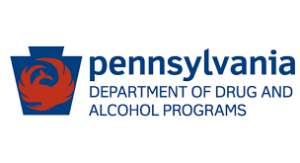PA Health Policy Update for the Week of April 11-15
The following is an update of selected state health policy developments in Pennsylvania for the week of April 11-15, 2022. (Some of the language used below is taken directly from state documents.)
 General Assembly
General Assembly
- The state House and Senate convened for session in Harrisburg this week.
- The House concurred with the Senate’s amendment to House Bill 245 and sent it to the governor’s desk. House Bill 245 reduces the clinical residency requirement from three years to two years for an applicant who has graduated from an international medical college to receive licensure in Pennsylvania.
- The House passed on third and final consideration House Bill 2401, which makes permanent two COVID-19 waivers that permit non-physician practitioners to order and oversee orders for home health care services and permits the continued use of remote supervisory visits by registered nurses, and House Bill 2419, which expands access to outpatient psychiatric care via telemedicine. These bills will now be sent to the Senate for consideration.
- The Senate passed on third and final consideration Senate Bill 1172, which authorizes the establishment of Sexual Assault Nurse Examiner (SANE) programs by hospitals, mandates the creation of a comprehensive list of such programs, and authorizes a grant program to establish and support SANE services. The bill was received in the House and referred to the Health Committee.
- The House Health Committee held an informational meeting on Tuesday, April 12 regarding “Opioids in the Commonwealth: Lessons learned and next steps.” A recording of the meeting may be viewed here.
- The House Veterans Affairs and Emergency Preparedness Committee favorably reported House Bill 2097, which makes permanent a COVID-19 regulatory waiver that permits certified emergency personnel, such as firefighters with specific first-aid, CPR, and emergency vehicle training, to drive ambulances with an EMT on board.
- The House Aging & Older Adult Services Committee held an informational meeting on Tuesday, April 12 to examine long-term-care facility workforce challenges. A recording of the meeting may be viewed here.
- The Senate Health & Human Services Committee met on Tuesday, April 12 and favorably reported the following bills.
-
- Senate Bill 749, which seeks to provide clarity for employees and employers regarding current ambiguity in the state’s medical marijuana law concerning the use of medical marijuana in the workplace.
- Senate Bill 1121, which requires the Department of Human Services (DHS) to verify wage records from employers and the Department of Revenue for Medicaid and SNAP beneficiaries.
- Senate Bill 1124, which requires DHS to check death certificates at the Bureau of Vital Statistics against Medicaid and SNAP beneficiaries.
- Senate Bill 1188, which seeks to increase awareness, testing, and access to treatment for Lyme disease.
A recording of the hearing may be viewed here.
Department of Human Services
The Department of Human Services (DHS) has posted a file note summarizing the March 10 meeting of the Medical Assistance Advisory Committee’s managed care delivery system subcommittee.
DHS has announced the addition of two procedure codes to the Medical Assistance fee schedule for the provision of personal care services by home health agencies to beneficiaries under 21 years of age, effective with dates of service on and after May 1, 2022. Find those procedure codes in this Pennsylvania Bulletin notice.
 Department of Health
Department of Health
- The Department of Health (DOH) has updated its guidance for reporting on point-of-care COVID-19 test results to bring Pennsylvania into compliance with revised federal requirements. See the new guidance here.
- DOH has updated its information about state-sponsored free COVID-19 testing sites to reflect that it currently operates such sites in Berks, Centre, and Clinton counties and at Edinboro University in Erie. Learn more about the locations and hours of operation in this department news release.
- DOH has posted new online resources for providers and the public to learn about and support
Pennsylvanians who may be experiencing symptoms of Alzheimer’s disease and related disorders. The new information comes in response to a law passed by the legislature earlier this year and signed by Governor Wolf requiring the administration to provide such information. Go here to find the resources for providers and here to view resources for the public.
COVID-19: By the Numbers
- Daily COVID-19 case counts climbed for the third consecutive week. The state’s seven-day average of new cases rose nearly 24 percent, from 797 cases on April 5 to 986 on April 13.
- On the other hand, the number of new COVID-19-related deaths continues to decline, from a seven-day average of 17 on April 5 to just 10 on April 13.
- The rising number of COVID-19 cases in Pennsylvania has not led to increases in hospital care for COVID-19 patients: during the past week the number of residents in hospital ICUs because of the virus and being treated with ventilators has remained steady while the number admitted to hospitals has risen only seven percent since the beginning of the month.
- During the past week five Pennsylvania counties – up from two last week – experienced high rates of transmission of COVID-19 (Potter, Bradford, Susquehanna, Columbia, and Pike); five counties – the same number as last week – experienced a low rate of community transmission (Bedford, Fulton, Juniata, Elk, and Sullivan); and 15 counties experienced a substantial rate of community transmission while another 42 experienced a moderate rate.
 Department of Drug and Alcohol Programs
Department of Drug and Alcohol Programs
The Department of Drug and Alcohol Programs has issued a news release describing its recent talks with state Attorney General Shapiro and other officials about how Pennsylvania might use its share of the national opioid settlement – as much as $1.07 billion – to address substance use challenges in the state. Learn more here.
Insurance Department
The Insurance Department has published a policy statement that will permit insurers to ask applicants to voluntarily provide race and ethnicity data on insurance applications in an effort to promote equity initiatives. The new statement of policy ends enforcement of a prohibition on such data collection published in 1969. Learn more about this policy change in this department news release and see the policy statement in this Pennsylvania Bulletin notice.
Stakeholder Events
Department of Health – Spinal Cord Research Advisory Committee – April 21
The Department of Health’s Spinal Cord Research Advisory Committee will meet virtually on Thursday, April 21 at 10:30. The purpose of this meeting is to review the committee’s work, review the status and progress of the current request for applications, reaffirm priorities, evaluate and refine the process to review the next spinal cord research applications, and address emerging issues. For information about how to join the meeting, see this Pennsylvania Bulletin notice.
Behavioral Health Services for the Nursing Facility Population – April 26 and May 3
The Department of Human Services’ Office of Long-Term Living, Office of Mental Health and Substance Abuse Services (OMHSAS), the HealthChoices behavioral health managed care organizations, and the Community HealthChoices managed care organizations will host a joint webinar on the importance of providing behavioral health services in nursing facilities and making sure nursing facilities know how to gain access to these services. The webinar will be held two more times and the material presented will be the same at each session. The webinars will be recorded. The session on Tuesday, April 26 will be held at 2:00; go here for more information and to register to participate. The session on Tuesday, May 3 also will be held at 2:00; go here for more information and to register to participate.
Department of Human Services – Medical Assistance Advisory Committee – Consumer Subcommittee – April 27
The Medical Assistance Advisory Committee’s consumer subcommittee will meet virtually on Wednesday, April 27 at 1:00. Go here to register to participate.
Department of Human Services – Medical Assistance Advisory Committee – April 28
The Medical Assistance Advisory Committee will meet virtually on Thursday, April 28 at 10:00. Go here to register to participate.
Special Pharmaceutical Benefits Program Advisory Council – April 28
The Department of Human Services’ Special Pharmaceutical Benefits Program Advisory Council will meet by teleconference on Thursday, April 28 at 10:00. Join the meeting at 866-588-4789 and use conference ID code 211 418 005#.
Patient Safety Authority – April 28
The Patient Safety Authority will hold a virtual public meeting of its board on Thursday, April 28 at 1:00 p.m. For information about how to participate see this Pennsylvania Bulletin notice.
Department of Health – Traumatic Brain Injury Advisory Board – May 6
The Traumatic Brain Injury Advisory Board will hold a public meeting on Friday, May 6 at 10:00 at the Pennsylvania Training and Technical Assistance Network, 6340 Flank Drive in Harrisburg, in the Dauphin Conference Room. To learn more about the meeting, and for information about how to participate virtually, see this Pennsylvania Bulletin notice.
Department of Human Services – Medical Assistance Advisory Committee – Managed Long-Term Services and Supports Subcommittee – May 10
The managed long-term services and supports subcommittee of DHS’s Medical Assistance Advisory Committee will meet virtually on Tuesday, May 10 at 10:00. To register to participate, go here.
 General Assembly
General Assembly Department of Human Services
Department of Human Services Stakeholder Events
Stakeholder Events Governor Wolf
Governor Wolf Governor Wolf
Governor Wolf General Assembly
General Assembly Included in this month’s issue are articles about:
Included in this month’s issue are articles about: General Assembly
General Assembly The Wolf administration has announced the creation of the Long-Term Care Resiliency, Infrastructure Supports, and Empowerment program, or LTC RISE, which seeks to give long-term-care facilities “…the support they need to battle COVID-19, recover, and rebuild.” Under the program, long-term-care facilities can pursue improvement projects in the areas of infection prevention and control and emergency preparedness; building a sustainable outbreak response operation; and promoting professional development and a resilient long-term-care facility workforce. The program is funded by a federal grant and replaces the state’s Regional Congregate Care Assistance Teams program, which expired at the end of 2021. Learn more about LTC RISE from
The Wolf administration has announced the creation of the Long-Term Care Resiliency, Infrastructure Supports, and Empowerment program, or LTC RISE, which seeks to give long-term-care facilities “…the support they need to battle COVID-19, recover, and rebuild.” Under the program, long-term-care facilities can pursue improvement projects in the areas of infection prevention and control and emergency preparedness; building a sustainable outbreak response operation; and promoting professional development and a resilient long-term-care facility workforce. The program is funded by a federal grant and replaces the state’s Regional Congregate Care Assistance Teams program, which expired at the end of 2021. Learn more about LTC RISE from  Department of Health
Department of Health COVID-19: By the Numbers
COVID-19: By the Numbers Pennsylvania Health Care Cost Containment Council (PHC4)
Pennsylvania Health Care Cost Containment Council (PHC4)